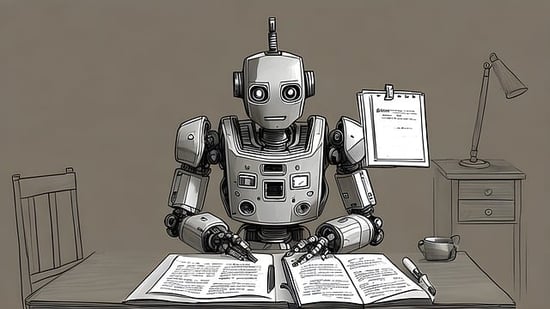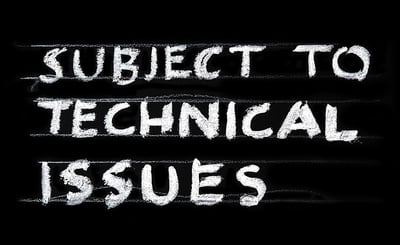- PRO Courses Guides New Tech Help Pro Expert Videos About wikiHow Pro Upgrade Sign In
- EDIT Edit this Article
- EXPLORE Tech Help Pro About Us Random Article Quizzes Request a New Article Community Dashboard This Or That Game Forums Popular Categories Arts and Entertainment Artwork Books Movies Computers and Electronics Computers Phone Skills Technology Hacks Health Men's Health Mental Health Women's Health Relationships Dating Love Relationship Issues Hobbies and Crafts Crafts Drawing Games Education & Communication Communication Skills Personal Development Studying Personal Care and Style Fashion Hair Care Personal Hygiene Youth Personal Care School Stuff Dating All Categories Arts and Entertainment Finance and Business Home and Garden Relationship Quizzes Cars & Other Vehicles Food and Entertaining Personal Care and Style Sports and Fitness Computers and Electronics Health Pets and Animals Travel Education & Communication Hobbies and Crafts Philosophy and Religion Work World Family Life Holidays and Traditions Relationships Youth
- Browse Articles
- Learn Something New
- Quizzes Hot
- Happiness Hub
- This Or That Game
- Train Your Brain
- Explore More
- Support wikiHow
- About wikiHow
- Log in / Sign up
- Computers and Electronics
- Online Communications

How to Get ChatGPT to Write an Essay: Prompts, Outlines, & More
Last Updated: June 2, 2024 Fact Checked
Getting ChatGPT to Write the Essay
Using ai to help you write, expert interview.
This article was co-authored by Bryce Warwick, JD and by wikiHow staff writer, Nicole Levine, MFA . Bryce Warwick is currently the President of Warwick Strategies, an organization based in the San Francisco Bay Area offering premium, personalized private tutoring for the GMAT, LSAT and GRE. Bryce has a JD from the George Washington University Law School. This article has been fact-checked, ensuring the accuracy of any cited facts and confirming the authority of its sources. This article has been viewed 53,842 times.
Are you curious about using ChatGPT to write an essay? While most instructors have tools that make it easy to detect AI-written essays, there are ways you can use OpenAI's ChatGPT to write papers without worrying about plagiarism or getting caught. In addition to writing essays for you, ChatGPT can also help you come up with topics, write outlines, find sources, check your grammar, and even format your citations. This wikiHow article will teach you the best ways to use ChatGPT to write essays, including helpful example prompts that will generate impressive papers.
Things You Should Know
- To have ChatGPT write an essay, tell it your topic, word count, type of essay, and facts or viewpoints to include.
- ChatGPT is also useful for generating essay topics, writing outlines, and checking grammar.
- Because ChatGPT can make mistakes and trigger AI-detection alarms, it's better to use AI to assist with writing than have it do the writing.

- Before using the OpenAI's ChatGPT to write your essay, make sure you understand your instructor's policies on AI tools. Using ChatGPT may be against the rules, and it's easy for instructors to detect AI-written essays.
- While you can use ChatGPT to write a polished-looking essay, there are drawbacks. Most importantly, ChatGPT cannot verify facts or provide references. This means that essays created by ChatGPT may contain made-up facts and biased content. [1] X Research source It's best to use ChatGPT for inspiration and examples instead of having it write the essay for you.

- The topic you want to write about.
- Essay length, such as word or page count. Whether you're writing an essay for a class, college application, or even a cover letter , you'll want to tell ChatGPT how much to write.
- Other assignment details, such as type of essay (e.g., personal, book report, etc.) and points to mention.
- If you're writing an argumentative or persuasive essay , know the stance you want to take so ChatGPT can argue your point.
- If you have notes on the topic that you want to include, you can also provide those to ChatGPT.
- When you plan an essay, think of a thesis, a topic sentence, a body paragraph, and the examples you expect to present in each paragraph.
- It can be like an outline and not an extensive sentence-by-sentence structure. It should be a good overview of how the points relate.

- "Write a 2000-word college essay that covers different approaches to gun violence prevention in the United States. Include facts about gun laws and give ideas on how to improve them."
- This prompt not only tells ChatGPT the topic, length, and grade level, but also that the essay is personal. ChatGPT will write the essay in the first-person point of view.
- "Write a 4-page college application essay about an obstacle I have overcome. I am applying to the Geography program and want to be a cartographer. The obstacle is that I have dyslexia. Explain that I have always loved maps, and that having dyslexia makes me better at making them."
Tyrone Showers
Be specific when using ChatGPT. Clear and concise prompts outlining your exact needs help ChatGPT tailor its response. Specify the desired outcome (e.g., creative writing, informative summary, functional resume), any length constraints (word or character count), and the preferred emotional tone (formal, humorous, etc.)

- In our essay about gun control, ChatGPT did not mention school shootings. If we want to discuss this topic in the essay, we can use the prompt, "Discuss school shootings in the essay."
- Let's say we review our college entrance essay and realize that we forgot to mention that we grew up without parents. Add to the essay by saying, "Mention that my parents died when I was young."
- In the Israel-Palestine essay, ChatGPT explored two options for peace: A 2-state solution and a bi-state solution. If you'd rather the essay focus on a single option, ask ChatGPT to remove one. For example, "Change my essay so that it focuses on a bi-state solution."

Pay close attention to the content ChatGPT generates. If you use ChatGPT often, you'll start noticing its patterns, like its tendency to begin articles with phrases like "in today's digital world." Once you spot patterns, you can refine your prompts to steer ChatGPT in a better direction and avoid repetitive content.

- "Give me ideas for an essay about the Israel-Palestine conflict."
- "Ideas for a persuasive essay about a current event."
- "Give me a list of argumentative essay topics about COVID-19 for a Political Science 101 class."

- "Create an outline for an argumentative essay called "The Impact of COVID-19 on the Economy."
- "Write an outline for an essay about positive uses of AI chatbots in schools."
- "Create an outline for a short 2-page essay on disinformation in the 2016 election."

- "Find peer-reviewed sources for advances in using MRNA vaccines for cancer."
- "Give me a list of sources from academic journals about Black feminism in the movie Black Panther."
- "Give me sources for an essay on current efforts to ban children's books in US libraries."

- "Write a 4-page college paper about how global warming is changing the automotive industry in the United States."
- "Write a 750-word personal college entrance essay about how my experience with homelessness as a child has made me more resilient."
- You can even refer to the outline you created with ChatGPT, as the AI bot can reference up to 3000 words from the current conversation. For example: "Write a 1000 word argumentative essay called 'The Impact of COVID-19 on the United States Economy' using the outline you provided. Argue that the government should take more action to support businesses affected by the pandemic."

- One way to do this is to paste a list of the sources you've used, including URLs, book titles, authors, pages, publishers, and other details, into ChatGPT along with the instruction "Create an MLA Works Cited page for these sources."
- You can also ask ChatGPT to provide a list of sources, and then build a Works Cited or References page that includes those sources. You can then replace sources you didn't use with the sources you did use.
Expert Q&A
- Because it's easy for teachers, hiring managers, and college admissions offices to spot AI-written essays, it's best to use your ChatGPT-written essay as a guide to write your own essay. Using the structure and ideas from ChatGPT, write an essay in the same format, but using your own words. Thanks Helpful 0 Not Helpful 0
- Always double-check the facts in your essay, and make sure facts are backed up with legitimate sources. Thanks Helpful 0 Not Helpful 0
- If you see an error that says ChatGPT is at capacity , wait a few moments and try again. Thanks Helpful 0 Not Helpful 0

- Using ChatGPT to write or assist with your essay may be against your instructor's rules. Make sure you understand the consequences of using ChatGPT to write or assist with your essay. Thanks Helpful 1 Not Helpful 0
- ChatGPT-written essays may include factual inaccuracies, outdated information, and inadequate detail. [3] X Research source Thanks Helpful 0 Not Helpful 0
You Might Also Like

Thanks for reading our article! If you’d like to learn more about completing school assignments, check out our in-depth interview with Bryce Warwick, JD .
- ↑ https://help.openai.com/en/articles/6783457-what-is-chatgpt
- ↑ https://platform.openai.com/examples/default-essay-outline
- ↑ https://www.ipl.org/div/chatgpt/
About This Article

- Send fan mail to authors
Is this article up to date?

Featured Articles

Trending Articles

Watch Articles

- Terms of Use
- Privacy Policy
- Do Not Sell or Share My Info
- Not Selling Info
wikiHow Tech Help:
Tech troubles got you down? We've got the tips you need
Celebrating 150 years of Harvard Summer School. Learn about our history.
Should I Use ChatGPT to Write My Essays?
Everything high school and college students need to know about using — and not using — ChatGPT for writing essays.
Jessica A. Kent
ChatGPT is one of the most buzzworthy technologies today.
In addition to other generative artificial intelligence (AI) models, it is expected to change the world. In academia, students and professors are preparing for the ways that ChatGPT will shape education, and especially how it will impact a fundamental element of any course: the academic essay.
Students can use ChatGPT to generate full essays based on a few simple prompts. But can AI actually produce high quality work, or is the technology just not there yet to deliver on its promise? Students may also be asking themselves if they should use AI to write their essays for them and what they might be losing out on if they did.
AI is here to stay, and it can either be a help or a hindrance depending on how you use it. Read on to become better informed about what ChatGPT can and can’t do, how to use it responsibly to support your academic assignments, and the benefits of writing your own essays.
What is Generative AI?
Artificial intelligence isn’t a twenty-first century invention. Beginning in the 1950s, data scientists started programming computers to solve problems and understand spoken language. AI’s capabilities grew as computer speeds increased and today we use AI for data analysis, finding patterns, and providing insights on the data it collects.
But why the sudden popularity in recent applications like ChatGPT? This new generation of AI goes further than just data analysis. Instead, generative AI creates new content. It does this by analyzing large amounts of data — GPT-3 was trained on 45 terabytes of data, or a quarter of the Library of Congress — and then generating new content based on the patterns it sees in the original data.
It’s like the predictive text feature on your phone; as you start typing a new message, predictive text makes suggestions of what should come next based on data from past conversations. Similarly, ChatGPT creates new text based on past data. With the right prompts, ChatGPT can write marketing content, code, business forecasts, and even entire academic essays on any subject within seconds.
But is generative AI as revolutionary as people think it is, or is it lacking in real intelligence?
The Drawbacks of Generative AI
It seems simple. You’ve been assigned an essay to write for class. You go to ChatGPT and ask it to write a five-paragraph academic essay on the topic you’ve been assigned. You wait a few seconds and it generates the essay for you!
But ChatGPT is still in its early stages of development, and that essay is likely not as accurate or well-written as you’d expect it to be. Be aware of the drawbacks of having ChatGPT complete your assignments.
It’s not intelligence, it’s statistics
One of the misconceptions about AI is that it has a degree of human intelligence. However, its intelligence is actually statistical analysis, as it can only generate “original” content based on the patterns it sees in already existing data and work.
It “hallucinates”
Generative AI models often provide false information — so much so that there’s a term for it: “AI hallucination.” OpenAI even has a warning on its home screen , saying that “ChatGPT may produce inaccurate information about people, places, or facts.” This may be due to gaps in its data, or because it lacks the ability to verify what it’s generating.
It doesn’t do research
If you ask ChatGPT to find and cite sources for you, it will do so, but they could be inaccurate or even made up.
This is because AI doesn’t know how to look for relevant research that can be applied to your thesis. Instead, it generates content based on past content, so if a number of papers cite certain sources, it will generate new content that sounds like it’s a credible source — except it likely may not be.
There are data privacy concerns
When you input your data into a public generative AI model like ChatGPT, where does that data go and who has access to it?
Prompting ChatGPT with original research should be a cause for concern — especially if you’re inputting study participants’ personal information into the third-party, public application.
JPMorgan has restricted use of ChatGPT due to privacy concerns, Italy temporarily blocked ChatGPT in March 2023 after a data breach, and Security Intelligence advises that “if [a user’s] notes include sensitive data … it enters the chatbot library. The user no longer has control over the information.”
It is important to be aware of these issues and take steps to ensure that you’re using the technology responsibly and ethically.
It skirts the plagiarism issue
AI creates content by drawing on a large library of information that’s already been created, but is it plagiarizing? Could there be instances where ChatGPT “borrows” from previous work and places it into your work without citing it? Schools and universities today are wrestling with this question of what’s plagiarism and what’s not when it comes to AI-generated work.
To demonstrate this, one Elon University professor gave his class an assignment: Ask ChatGPT to write an essay for you, and then grade it yourself.
“Many students expressed shock and dismay upon learning the AI could fabricate bogus information,” he writes, adding that he expected some essays to contain errors, but all of them did.
His students were disappointed that “major tech companies had pushed out AI technology without ensuring that the general population understands its drawbacks” and were concerned about how many embraced such a flawed tool.
Explore Our High School Programs
How to Use AI as a Tool to Support Your Work
As more students are discovering, generative AI models like ChatGPT just aren’t as advanced or intelligent as they may believe. While AI may be a poor option for writing your essay, it can be a great tool to support your work.
Generate ideas for essays
Have ChatGPT help you come up with ideas for essays. For example, input specific prompts, such as, “Please give me five ideas for essays I can write on topics related to WWII,” or “Please give me five ideas for essays I can write comparing characters in twentieth century novels.” Then, use what it provides as a starting point for your original research.
Generate outlines
You can also use ChatGPT to help you create an outline for an essay. Ask it, “Can you create an outline for a five paragraph essay based on the following topic” and it will create an outline with an introduction, body paragraphs, conclusion, and a suggested thesis statement. Then, you can expand upon the outline with your own research and original thought.
Generate titles for your essays
Titles should draw a reader into your essay, yet they’re often hard to get right. Have ChatGPT help you by prompting it with, “Can you suggest five titles that would be good for a college essay about [topic]?”
The Benefits of Writing Your Essays Yourself
Asking a robot to write your essays for you may seem like an easy way to get ahead in your studies or save some time on assignments. But, outsourcing your work to ChatGPT can negatively impact not just your grades, but your ability to communicate and think critically as well. It’s always the best approach to write your essays yourself.
Create your own ideas
Writing an essay yourself means that you’re developing your own thoughts, opinions, and questions about the subject matter, then testing, proving, and defending those thoughts.
When you complete school and start your career, projects aren’t simply about getting a good grade or checking a box, but can instead affect the company you’re working for — or even impact society. Being able to think for yourself is necessary to create change and not just cross work off your to-do list.
Building a foundation of original thinking and ideas now will help you carve your unique career path in the future.
Develop your critical thinking and analysis skills
In order to test or examine your opinions or questions about a subject matter, you need to analyze a problem or text, and then use your critical thinking skills to determine the argument you want to make to support your thesis. Critical thinking and analysis skills aren’t just necessary in school — they’re skills you’ll apply throughout your career and your life.
Improve your research skills
Writing your own essays will train you in how to conduct research, including where to find sources, how to determine if they’re credible, and their relevance in supporting or refuting your argument. Knowing how to do research is another key skill required throughout a wide variety of professional fields.
Learn to be a great communicator
Writing an essay involves communicating an idea clearly to your audience, structuring an argument that a reader can follow, and making a conclusion that challenges them to think differently about a subject. Effective and clear communication is necessary in every industry.
Be impacted by what you’re learning about :
Engaging with the topic, conducting your own research, and developing original arguments allows you to really learn about a subject you may not have encountered before. Maybe a simple essay assignment around a work of literature, historical time period, or scientific study will spark a passion that can lead you to a new major or career.

Resources to Improve Your Essay Writing Skills
While there are many rewards to writing your essays yourself, the act of writing an essay can still be challenging, and the process may come easier for some students than others. But essay writing is a skill that you can hone, and students at Harvard Summer School have access to a number of on-campus and online resources to assist them.
Students can start with the Harvard Summer School Writing Center , where writing tutors can offer you help and guidance on any writing assignment in one-on-one meetings. Tutors can help you strengthen your argument, clarify your ideas, improve the essay’s structure, and lead you through revisions.
The Harvard libraries are a great place to conduct your research, and its librarians can help you define your essay topic, plan and execute a research strategy, and locate sources.
Finally, review the “ The Harvard Guide to Using Sources ,” which can guide you on what to cite in your essay and how to do it. Be sure to review the “Tips For Avoiding Plagiarism” on the “ Resources to Support Academic Integrity ” webpage as well to help ensure your success.
Sign up to our mailing list to learn more about Harvard Summer School
The Future of AI in the Classroom
ChatGPT and other generative AI models are here to stay, so it’s worthwhile to learn how you can leverage the technology responsibly and wisely so that it can be a tool to support your academic pursuits. However, nothing can replace the experience and achievement gained from communicating your own ideas and research in your own academic essays.
About the Author
Jessica A. Kent is a freelance writer based in Boston, Mass. and a Harvard Extension School alum. Her digital marketing content has been featured on Fast Company, Forbes, Nasdaq, and other industry websites; her essays and short stories have been featured in North American Review, Emerson Review, Writer’s Bone, and others.
5 Key Qualities of Students Who Succeed at Harvard Summer School (and in College!)
This guide outlines the kinds of students who thrive at Harvard Summer School and what the programs offer in return.
Harvard Division of Continuing Education
The Division of Continuing Education (DCE) at Harvard University is dedicated to bringing rigorous academics and innovative teaching capabilities to those seeking to improve their lives through education. We make Harvard education accessible to lifelong learners from high school to retirement.


Choose Your Test
- Search Blogs By Category
- College Admissions
- AP and IB Exams
- GPA and Coursework
Can You Use ChatGPT for Your College Essay?
College Admissions , College Essays

ChatGPT has become a popular topic of conversation since its official launch in November 2022. The artificial intelligence (AI) chatbot can be used for all sorts of things, like having conversations, answering questions, and even crafting complete pieces of writing.
If you’re applying for college, you might be wondering about ChatGPT college admissions’ potential. Should you use a ChatGPT college essay in your application ?
By the time you finish reading this article, you’ll know much more about ChatGPT, including how students can use it responsibly and if it’s a good idea to use ChatGPT on college essays . We’ll answer all your questions, like:
- What is ChatGPT and why are schools talking about it?
- What are the good and bad aspects of ChatGPT?
- Should you use ChatGPT for college essays and applications?
- Can colleges detect ChatGPT?
- Are there other tools and strategies that students can use, instead?
We’ve got a lot to cover, so let’s get started!

Schools and colleges are worried about how new AI technology affects how students learn. (Don't worry. Robots aren't replacing your teachers...yet.)
What Is ChatGPT and Why Are Schools Talking About It?
ChatGPT (short for “Chat Generative Pre-trained Transformer”) is a chatbot created by OpenAI , an artificial intelligence research company. ChatGPT can be used for various tasks, like having human-like conversations, answering questions, giving recommendations, translating words and phrases—and writing things like essays.
In order to do this, ChatGPT uses a neural network that’s been trained on thousands of resources to predict relationships between words. When you give ChatGPT a task, it uses that knowledge base to interpret your input or query. It then analyzes its data banks to predict the combinations of words that will best answer your question.
So while ChatGPT might seem like it’s thinking, it’s actually pulling information from hundreds of thousands of resources , then answering your questions by looking for patterns in that data and predicting which words come next.
Why Schools Are Concerned About ChatGPT
Unsurprisingly, schools are worried about ChatGPT and its misuse, especially in terms of academic dishonesty and plagiarism . Most schools, including colleges, require students’ work to be 100% their own. That’s because taking someone else’s ideas and passing them off as your own is stealing someone else’s intellectual property and misrepresenting your skills.
The problem with ChatGPT from schools’ perspective is that it does the writing and research for you, then gives you the final product. In other words, you’re not doing the work it takes to complete an assignment when you’re using ChatGPT , which falls under schools’ plagiarism and dishonesty policies.
Colleges are also concerned with how ChatGPT will negatively affect students’ critical thinking, research, and writing skills . Essays and other writing assignments are used to measure students’ mastery of the material, and if students submit ChatGPT college essays, teachers will just be giving feedback on an AI’s writing…which doesn’t help the student learn and grow.
Beyond that, knowing how to write well is an important skill people need to be successful throughout life. Schools believe that if students rely on ChatGPT to write their essays, they’re doing more than just plagiarizing—they’re impacting their ability to succeed in their future careers.
Many Schools Have Already Banned ChatGPT
Schools have responded surprisingly quickly to AI use, including ChatGPT. Worries about academic dishonesty, plagiarism, and mis/disinformation have led many high schools and colleges to ban the use of ChatGPT . Some schools have begun using AI-detection software for assignment submissions, and some have gone so far as to block students from using ChatGPT on their internet networks.
It’s likely that schools will begin revising their academic honesty and plagiarism policies to address the use of AI tools like ChatGPT. You’ll want to stay up-to-date with your schools’ policies.

ChatGPT is pretty amazing...but it's not a great tool for writing college essays. Here's why.
ChatGPT: College Admissions and Entrance Essays
College admissions essays—also called personal statements—ask students to explore important events, experiences, and ideas from their lives. A great entrance essay will explain what makes you you !
ChatGPT is a machine that doesn’t know and can’t understand your experiences. That means using ChatGPT to write your admissions essays isn’t just unethical. It actually puts you at a disadvantage because ChatGPT can’t adequately showcase what it means to be you.
Let’s take a look at four ways ChatGPT negatively impacts college admissions essays.
#1: ChatGPT Lacks Insight
We recommend students use u nexpected or slightly unusual topics because they help admissions committees learn more about you and what makes you unique. The chat bot doesn’t know any of that, so nothing ChatGPT writes can’t accurately reflect your experience, passions, or goals for the future.
Because ChatGPT will make guesses about who you are, it won’t be able to share what makes you unique in a way that resonates with readers. And since that’s what admissions counselors care about, a ChatGPT college essay could negatively impact an otherwise strong application.
#2: ChatGPT Might Plagiarize
Writing about experiences that many other people have had isn’t a very strong approach to take for entrance essays . After all, you don’t want to blend in—you want to stand out!
If you write your essay yourself and include key details about your past experiences and future goals, there’s little risk that you’ll write the same essay as someone else. But if you use ChatGPT—who’s to say someone else won’t, too? Since ChatGPT uses predictive guesses to write essays, there’s a good chance the text it uses in your essay already appeared in someone else’s.
Additionally, ChatGPT learns from every single interaction it has. So even if your essay isn’t plagiarized, it’s now in the system. That means the next person who uses ChatGPT to write their essay may end up with yours. You’ll still be on the hook for submitting a ChatGPT college essay, and someone else will be in trouble, too.
#3: ChatGPT Doesn’t Understand Emotion
Keep in mind that ChatGPT can’t experience or imitate emotions, and so its writing samples lack, well, a human touch !
A great entrance essay will explore experiences or topics you’re genuinely excited about or proud of . This is your chance to show your chosen schools what you’ve accomplished and how you’ll continue growing and learning, and an essay without emotion would be odd considering that these should be real, lived experiences and passions you have!
#4: ChatGPT Produced Mediocre Results
If you’re still curious what would happen if you submitted a ChatGPT college essay with your application, you’re in luck. Both Business Insider and Forbes asked ChatGPT to write a couple of college entrance essays, and then they sent them to college admissions readers to get their thoughts.
The readers agreed that the essays would probably pass as being written by real students—assuming admissions committees didn’t use AI detection software—but that they both were about what a “very mediocre, perhaps even a middle school, student would produce.” The admissions professionals agreed that the essays probably wouldn’t perform very well with entrance committees, especially at more selective schools.
That’s not exactly the reaction you want when an admission committee reads your application materials! So, when it comes to ChatGPT college admissions, it’s best to steer clear and write your admission materials by yourself.
Can Colleges Detect ChatGPT?
We’ve already explained why it’s not a great idea to use ChatGPT to write your college essays and applications , but you may still be wondering: can colleges detect ChatGPT?
In short, yes, they can!
Software Can Detect ChatGPT
As technology improves and increases the risk of academic dishonesty, plagiarism, and mis/disinformation, software that can detect such technology is improving, too. For instance, OpenAI, the same company that built ChatGPT, is working on a text classifier that can tell the difference between AI-written text and human-written text .
Turnitin, one of the most popular plagiarism detectors used by high schools and universities, also recently developed the AI Innovation Lab —a detection software designed to flag submissions that have used AI tools like ChatGPT. Turnitin says that this tool works with 98% confidence in detecting AI writing.
Plagiarism and AI companies aren’t the only ones interested in AI-detection software. A 22-year old computer science student at Princeton created an app to detect ChatGPT writing, called Zero GPT. This software works by measuring the complexity of ideas and variety of sentence structures.
Human Readers Can Detect ChatGPT
It’s also worth keeping in mind that teachers can spot the use of ChatGPT themselves , even if it isn’t confirmed by a software detector. For example, if you’ve turned in one or two essays to your teacher already, they’re probably familiar with your unique writing style. If you submit a college essay draft essay that uses totally different vocabulary, sentence structures, and figures of speech, your teacher will likely take note.
Additionally , admissions committees and readers may be able to spot ChatGPT writing, too. ChatGPT (and AI writing, in general) uses more simplistic sentence structures with less variation, so that could make it easier to tell if you’ve submitted a ChatGPT college essay. These professionals also read thousands of essays every year, which means they know what a typical essay reads like. You want your college essay to catch their attention…but not because you used AI software!

If you use ChatGPT responsibly, you can be as happy as these kids.
Pros and Cons of ChatGPT: College Admissions Edition
ChatGPT is a brand new technology, which means we’re still learning about the ways it can benefit us. It’s important to think about the pros and the cons to any new tool …and that includes artificial intelligence!
Let’s look at some of the good—and not-so-good—aspects of ChatGPT below.
ChatGPT: The Good
It may seem like we’re focused on just the negatives of using ChatGPT in this article, but we’re willing to admit that the chatbot isn’t all bad. In fact, it can be a very useful tool for learning if used responsibly !
Like we already mentioned, students shouldn’t use ChatGPT to write entire essays or assignments. They can use it, though, as a learning tool alongside their own critical thinking and writing skills.
Students can use ChatGPT responsibly to:
- Learn more about a topic . It’s a great place to get started for general knowledge and ideas about most subjects.
- Find reputable and relevant sources on a topic. Students can ask ChatGPT for names and information about leading scholars, relevant websites and databases, and more.
- Brainstorm ideas for assignments. Students can share the ideas they already have with ChatGPT, and in return, the chatbot can suggest ideas for further exploration and even organization of their points.
- Check work (that they’ve written themselves!) for errors or cla rity. This is similar to how spell- and grammar-checking software is used. ChatGPT may be even better than some competitors for this, because students can actually ask ChatGPT to explain the errors and their solutions—not just to fix them.
Before you use ChatGPT—even for the tasks mentioned above—you should talk to your teacher or school about their AI and academic dishonesty policies. It’s also a good idea to include an acknowledgement that you used ChatGPT with an explanation of its use.

This guy made some bad decisions using ChatGPT. Don't be this guy.
ChatGPT: The Bad
The first model of ChatGPT (GPT-3.5) was formally introduced to the public in November 2022, and the newer model (GPT-4) in March 2023. So, it’s still very new and there’s a lot of room for improvement .
There are many misconceptions about ChatGPT. One of the most extreme is that the AI is all-knowing and can make its own decisions. Another is that ChatGPT is a search engine that, when asked a question, can just surf the web for timely, relevant resources and give you all of that information. Both of these beliefs are incorrect because ChatGPT is limited to the information it’s been given by OpenAI .
Remember how the ‘PT’ in ChatGPT stands for “Pre-trained”? That means that every time OpenAI gives ChatGPT an update, it’s given more information to work with (and so it has more information to share with you). In other words, it’s “trained” on information so it can give you the most accurate and relevant responses possible—but that information can be limited and biased . Ultimately, humans at OpenAI decide what pieces of information to share with ChatGPT, so it’s only as accurate and reliable as the sources it has access to.
For example, if you were to ask ChatGPT-3.5 what notable headlines made the news last week, it would respond that it doesn’t have access to that information because its most recent update was in September 2021!
You’re probably already familiar with how easy it can be to come across misinformation, misleading and untrue information on the internet. Since ChatGPT can’t tell the difference between what is true and what isn’t, it’s up to the humans at OpenAI to make sure only accurate and true information is given to the chatbot . This leaves room for human error , and users of ChatGPT have to keep that in mind when using and learning from the chatbot.
These are just the most obvious problems with ChatGPT. Some other problems with the chatbot include:
- A lack of common sense. ChatGPT can create seemingly sensical responses to many questions and topics, but it doesn’t have common sense or complete background knowledge.
- A lack of empathy. ChatGPT doesn’t have emotions, so it can’t understand them, either.
- An inability to make decisions or problem solve . While the chatbot can complete basic tasks like answering questions or giving recommendations, it can’t solve complex tasks.
While there are some great uses for ChatGPT, it’s certainly not without its flaws.

Our bootcamp can help you put together amazing college essays that help you get into your dream schools—no AI necessary.
What Other Tools and Strategies Can Help Students Besides ChatGPT?
While it’s not a good idea to use ChatGPT for college admissions materials, it’s not the only tool available to help students with college essays and assignments.
One of the best strategies students can use to write good essays is to make sure they give themselves plenty of time for the assignment. The writing process includes much more than just drafting! Having time to brainstorm ideas, write out a draft, revise it for clarity and completeness, and polish it makes for a much stronger essay.
Teachers are another great resource students can use, especially for college application essays. Asking a teacher (or two!) for feedback can really help students improve the focus, clarity, and correctness of an essay. It’s also a more interactive way to learn—being able to sit down with a teacher to talk about their feedback can be much more engaging than using other tools.
Using expert resources during the essay writing process can make a big difference, too. Our article outlines a complete list of strategies for students writing college admission essays. It breaks down what the Common Application essay is, gives tips for choosing the best essay topic, offers strategies for staying focused and being specific, and more.
You can also get help from people who know the college admissions process best, like former admissions counselors. PrepScholar’s Admissions Bootcamp guides you through the entire application process , and you’ll get insider tips and tricks from real-life admissions counselors that’ll make your applications stand out. Even better, our bootcamp includes step-by-step essay writing guidance, so you can get the help you need to make sure your essay is perfect.
If you’re hoping for more technological help, Grammarly is another AI tool that can check writing for correctness. It can correct things like misused and misspelled words and grammar mistakes, and it can improve your tone and style.
It’s also widely available across multiple platforms through a Windows desktop app, an Android and iOS app, and a Google Chrome extension. And since Grammarly just checks your writing without doing any of the work for you, it’s totally safe to use on your college essays.
The Bottom Line: ChatGPT College Admissions and Essays
ChatGPT will continue to be a popular discussion topic as it continues evolving. You can expect your chosen schools to address ChatGPT and other AI tools in their academic honesty and plagiarism policies in the near future—and maybe even to restrict or ban the use of the chatbot for school admissions and assignments.
As AI continues transforming, so will AI-detection. The goal is to make sure that AI is used responsibly by students so that they’re avoiding plagiarism and building their research, writing, and critical thinking skills. There are some great uses for ChatGPT when used responsibly, but you should always check with your teachers and schools beforehand.
ChatGPT’s “bad” aspects still need improving, and that’s going to take some time.Be aware that the chatbot isn’t even close to perfect, and it needs to be fact-checked just like other sources of information.
Similarly to other school assignments, don’t submit a ChatGPT college essay for college applications, either. College entrance essays should outline unique and interesting personal experiences and ideas, and those can only come from you.
Just because ChatGPT isn’t a good idea doesn’t mean there aren’t resources to help you put together a great college essay. There are many other tools and strategies you can use instead of ChatGPT , many of which have been around for longer and offer better feedback.

What’s Next?
Ready to write your college essays the old-fashioned way? Start here with our comprehensive guide to the admissions essays.
Most students have to submit essays as part of their Common Application . Here's a complete breakdown of the Common App prompts —and how to answer them.
The most common type of essay answers the "why this college?" prompt. We've got an expert breakdown that shows you how to write a killer response , step by step.

Trending Now
How to Get Into Harvard and the Ivy League
How to Get a Perfect 4.0 GPA
How to Write an Amazing College Essay
What Exactly Are Colleges Looking For?
ACT vs. SAT: Which Test Should You Take?
When should you take the SAT or ACT?
Get Your Free

Find Your Target SAT Score
Free Complete Official SAT Practice Tests
How to Get a Perfect SAT Score, by an Expert Full Scorer
Score 800 on SAT Math
Score 800 on SAT Reading and Writing
How to Improve Your Low SAT Score
Score 600 on SAT Math
Score 600 on SAT Reading and Writing
Find Your Target ACT Score
Complete Official Free ACT Practice Tests
How to Get a Perfect ACT Score, by a 36 Full Scorer
Get a 36 on ACT English
Get a 36 on ACT Math
Get a 36 on ACT Reading
Get a 36 on ACT Science
How to Improve Your Low ACT Score
Get a 24 on ACT English
Get a 24 on ACT Math
Get a 24 on ACT Reading
Get a 24 on ACT Science
Stay Informed
Get the latest articles and test prep tips!

Ashley Sufflé Robinson has a Ph.D. in 19th Century English Literature. As a content writer for PrepScholar, Ashley is passionate about giving college-bound students the in-depth information they need to get into the school of their dreams.
Ask a Question Below
Have any questions about this article or other topics? Ask below and we'll reply!

IMAGES
VIDEO